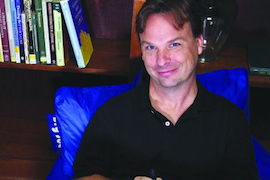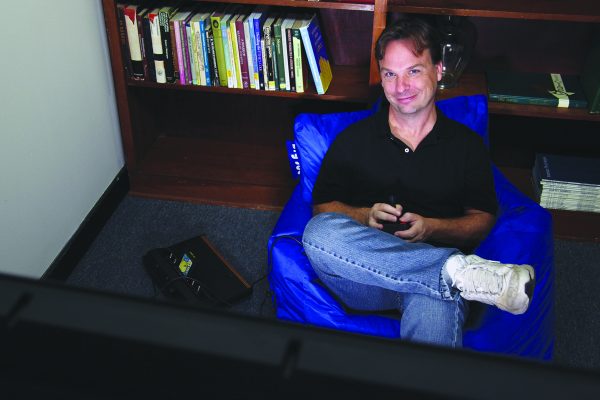Opportunity for Faculty and Students


Like many universities nationwide, Stetson is placing increased value on research and involving undergraduates in research mentorship opportunities. But this can place new demands on faculty members. Teaching loads aren’t reduced. Our technological infrastructure may be less than big research universities. And rebooting our focus on research may necessitate cultural changes in priorities across faculty and administration.
But it can be done, and Stetson is becoming a model for how to do it well.
In the psychology department, we take great pride in the opportunities for students to be involved in research. Indeed, we believe that it is one of the things that sets our department apart from comparably sized universities. Dozens of our students have attended professional conferences to present their work in recent years. Increasingly, students are also co-authoring in peer-reviewed journals. Several have even first authored student-led research in professional journals. These research experiences present students with critical experience that will translate to marketability when seeking a job and, of course, give them a leg up during graduate-school applications.
The close working relationship between Stetson faculty and students presents a unique opportunity for students to work in faculty labs. Certainly there are opportunities at big research universities as well, but such opportunities are destined for very few. At a university like Stetson, we have countless opportunities to bring a greater proportion of our students into our labs and work with them directly.
At a liberal arts university, we also have freedom to pursue topics that will be valuable and of interest to our students. This may differ from faculty at large research universities, who may need to focus their research on the interests of grant-giving agencies.
Ultimately, the greatest piece of advice I can give for research success: Be involved in a topic that is intrinsically exciting. Finding a connection with a worthwhile topic will naturally propel faculty productivity and draw students into that funnel of success as well. Faculty/student collaborations are a natural means of increasing overall productivity by gearing talented students toward working on publishable research.
Such activities can have far-reaching impact. For example, last year Stetson’s psychotechnology lab, part of the Psychology Department, organized a Consortium of Scholars letter to the American Psychological Association (APA). Signed by 238 media scholars, criminologists and psychologists around the world, this letter asked the APA to retire its outdated policy statements on video games and other media. The Consortium letter received international media attention this year in outlets such as Newsweek, CNN and the BBC, drawing attention to controversies in video game research.
The greatest challenge, of course, is time. Mentoring students in research requires time. Supervising more students inevitably translates into more work, competing with the myriad other responsibilities of a faculty member. Seeing students through successful research projects requires a commitment and prioritization of research. Time must be set aside — and protected — for faculty/student collaborations in research, and commitment must be made at both the individual and institutional levels to prioritize this research.
For me, my proudest moments are seeing my students succeed in their research endeavors. This past year, one of my students, Amanda Roy, worked supremely hard at her senior research examining the impact of competitive versus cooperative video game play on stress reduction. Once it was completed, she presented her work at the APA conference, where she met some of the leading scholars in the field. Her work was subsequently accepted for publication in the peer-reviewed journal Computers in Human Behavior.
It is moments such as this of which we can be most proud.
By Christopher J. Ferguson, Ph.D.
Christopher J. Ferguson, Ph.D., is associate professor and chair of the Department of Psychology at Stetson. His major research focus is on violence in media/video gaming.
Note: This article originally appeared in the Spring 2016 issue of Stetson University Magazine. To read the entire magazine, click here. The next issue of the magazine is scheduled for publication this fall.



